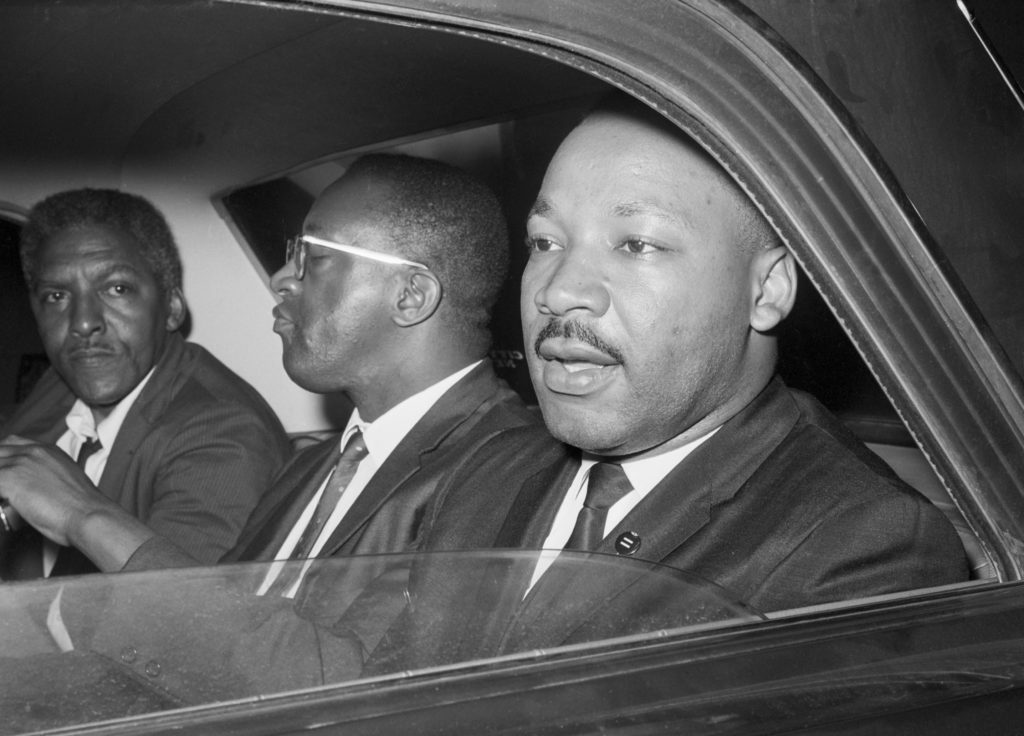Dr. Martin Luther King, Jr. (r), Bayard Rustin (left), and Rev. Bernard Lee, (c) after a 1964 meeting with New York Mayor Wagner to discuss civil rights (Getty)
On Martin Luther King Jr Day, we take a look at queer civil rights hero Bayard Rustin’s reflection on the movement’s stance on homosexuality.
Often considered the intellectual godfather of the US civil rights movement, Rustin was a mentor to Martin Luther King Jr and organised the 1963 March on Washington;
Though he had a key role in shaping the civil rights movement, Rustin eschewed the role of a public figurehead after being arrested under anti-gay laws in 1953, fearful that his sexuality would be used against him – which unsealed FBI files later confirmed was a very real threat.
Bayard Rustin: Martin Luther King Jr ‘would have been sympathetic’
The civil rights pioneer penned an essay in 1987 that reflected on Dr King’s views on the subject.
He wrote: “It is difficult for me to know what Dr. King felt about gayness except to say that I’m sure he would have been sympathetic and would not have had the prejudicial view.
“Otherwise he would not have hired me. He never felt it necessary to discuss that with me.”
He added: “I think at a given point he had to reach a decision. My being gay was not a problem for Dr. King but a problem for the movement.”

However, Rustin recalled that in 1960, some of King’s associates “came to the decision that my sex life was a burden” and “advised him that he should ask me to leave.”
Rustin wrote: “I told Dr. King that if advisors closest to him felt I was a burden, then rather than put him in a position that he had to say leave, I would go. He was just so harassed that I felt it was my obligation to relieve him of as much of that as I could. ”
After his departure, Rustin says that King “continued to call on me, over and over” – and approved of his role in the March on Washington.
Coretta Scott King was an early gay rights champion
After her husband’s death, Dr King’s wife Coretta Scott King dedicated her life to fighting for LGBT rights alongside civil rights – believing that he would have done exactly the same.
As early as 1983, Mrs King was urging for gays and lesbians to be protected from discrimination – and she remained ahead of her time until her death in 2006.
She backed same-sex marriage in 2004, declaring it a civil rights issue, and said that her late husband would have also been in favour.
Mrs King told gay rights activists at the time: “I’m proud to stand with all of you, as your sister, in a great new American coalition for freedom and human rights.
“With this faith and this commitment we will create the beloved community of Martin Luther King Jr.’s dream, where all people can live together in a spirit of trust and understanding, harmony, love and peace.”
